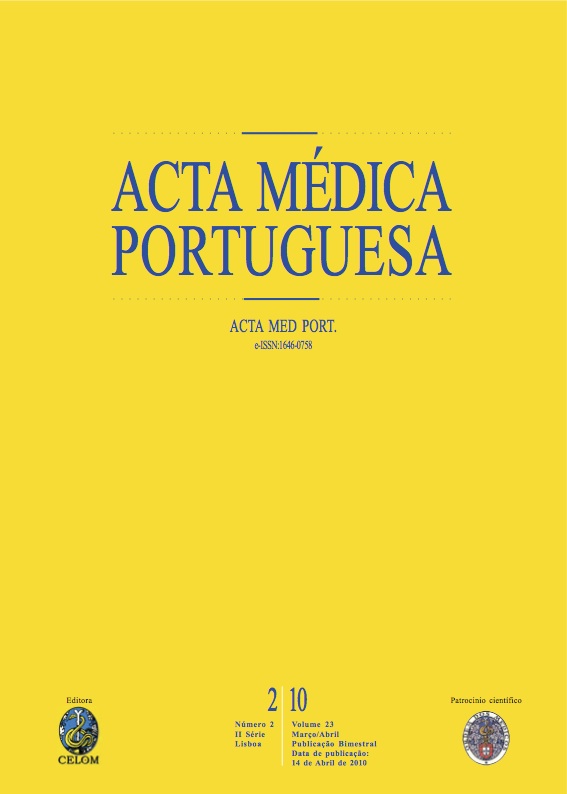Management of menopause in primary health care.
DOI:
https://doi.org/10.20344/amp.612Abstract
Menopause is a biological process that occurs as part of aging in women. The increase in average life expectancy and the decline in mortality have caused the aging of global population and, currently, women live about a third of their life in postmenopausal. The General Physician (GP) is usually the first health professional whom women rely on to relieve their menopause symptoms. It is essential for the GP to know how to properly approach women at this stage of their life and how to provide them the best support.To evaluate women in perimenopause and postmenopausal, to recognize its signs and symptoms, and to use properly the Hormone Replacement Therapy (HRT) in Primary Health Care (PHC).We performed a literature search in the PubMed database using the MeSH terms: Menopause, Hormone Replacement Therapy, Primary Health Care. The search was limited to articles published between January 2000 and March 2009 in English, Portuguese and Spanish. Recommendations from Scientific Societies were also searched.During menopause women are more predisposed to change their habits and to adopt healthy lifestyles. The GP plays a key role in health promotion among these women. The most common complaints that lead women to the PHC during perimenopause are vasomotor symptoms, sleep disorders, weight gain, uterine bleeding, urogenital and sexual changes and disturbances of mood and memory. The use of HRT is only recommended for the control of severe vasomotor symptoms that affect women's quality of life, as well as for vaginal atrophy and urinary symptoms. It should be used for a short period of time and in the lowest dose. It is important for the GP to know the existing formulations, the way of administration and the correct monitoring of this therapy.Women experience physical and psychological changes during perimenopause and postmenopausal, resulting from aging and hypoestrogenism. It is essential that the GP recognizes the symptoms and their impact on quality of life of women, offering treatment when necessary. The HRT and its follow-up can be performed in PHC, if the GP know how to use this type of treatment.Downloads
Downloads
How to Cite
Issue
Section
License
All the articles published in the AMP are open access and comply with the requirements of funding agencies or academic institutions. The AMP is governed by the terms of the Creative Commons ‘Attribution – Non-Commercial Use - (CC-BY-NC)’ license, regarding the use by third parties.
It is the author’s responsibility to obtain approval for the reproduction of figures, tables, etc. from other publications.
Upon acceptance of an article for publication, the authors will be asked to complete the ICMJE “Copyright Liability and Copyright Sharing Statement “(http://www.actamedicaportuguesa.com/info/AMP-NormasPublicacao.pdf) and the “Declaration of Potential Conflicts of Interest” (http:// www.icmje.org/conflicts-of-interest). An e-mail will be sent to the corresponding author to acknowledge receipt of the manuscript.
After publication, the authors are authorised to make their articles available in repositories of their institutions of origin, as long as they always mention where they were published and according to the Creative Commons license.









